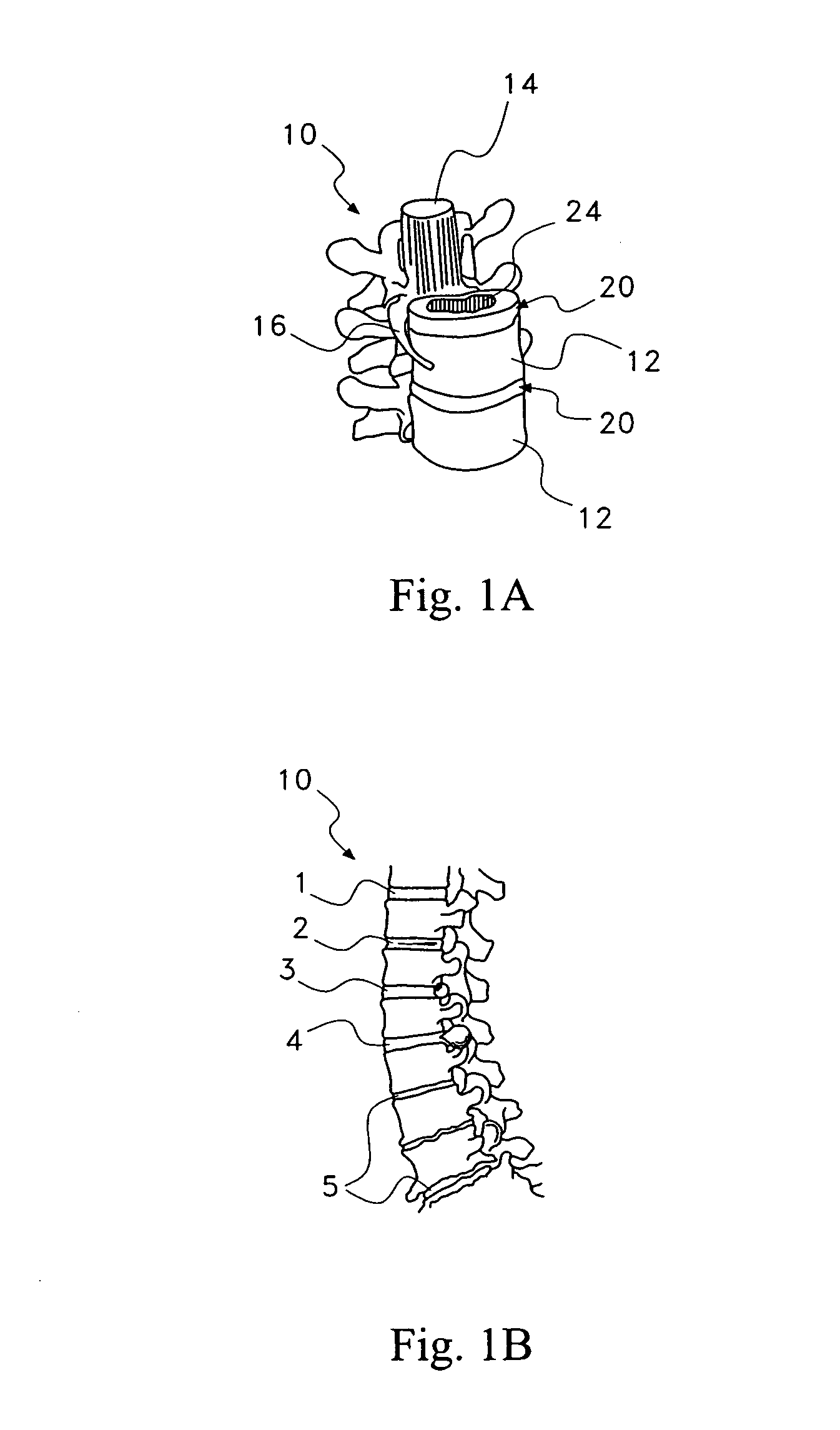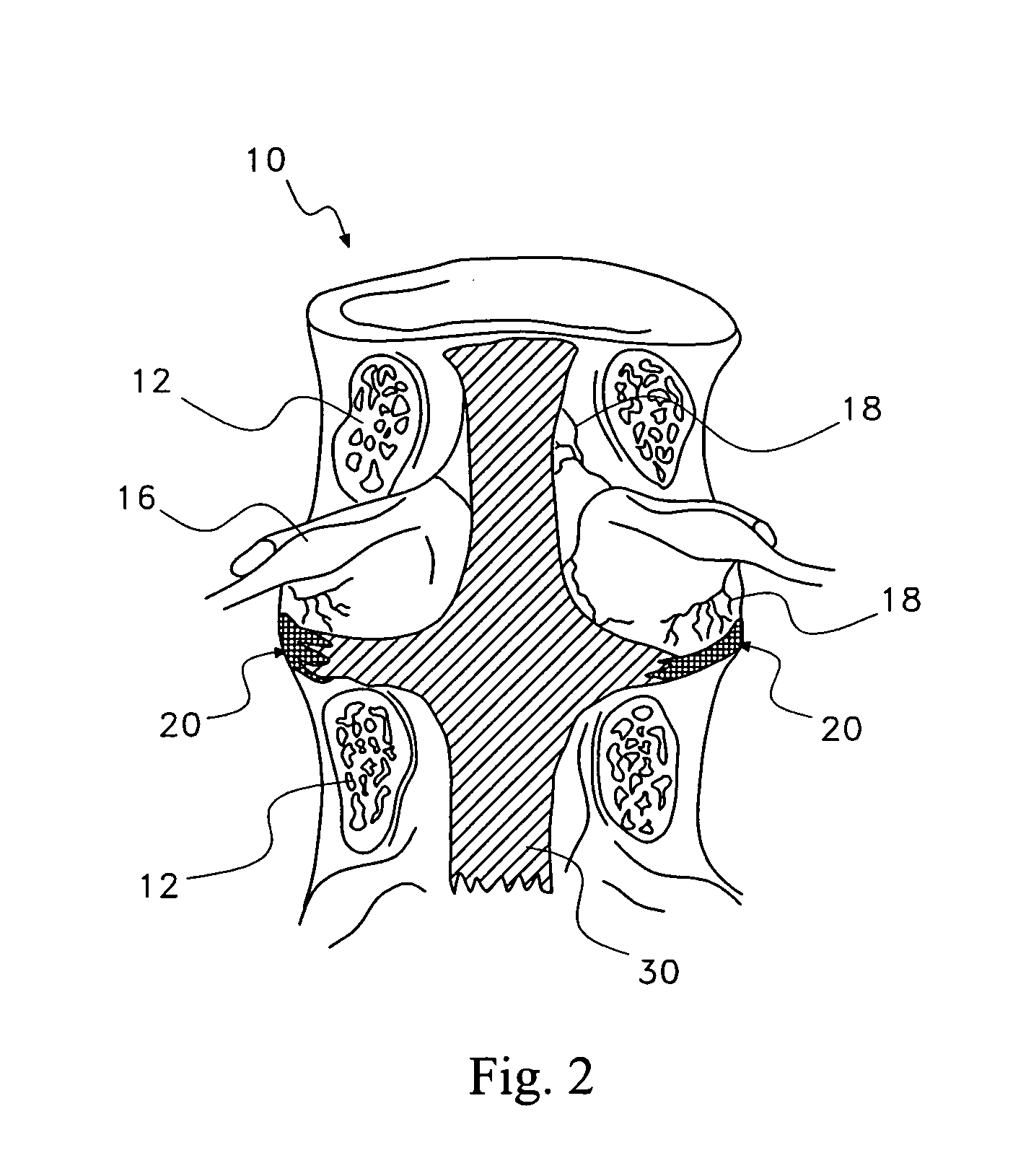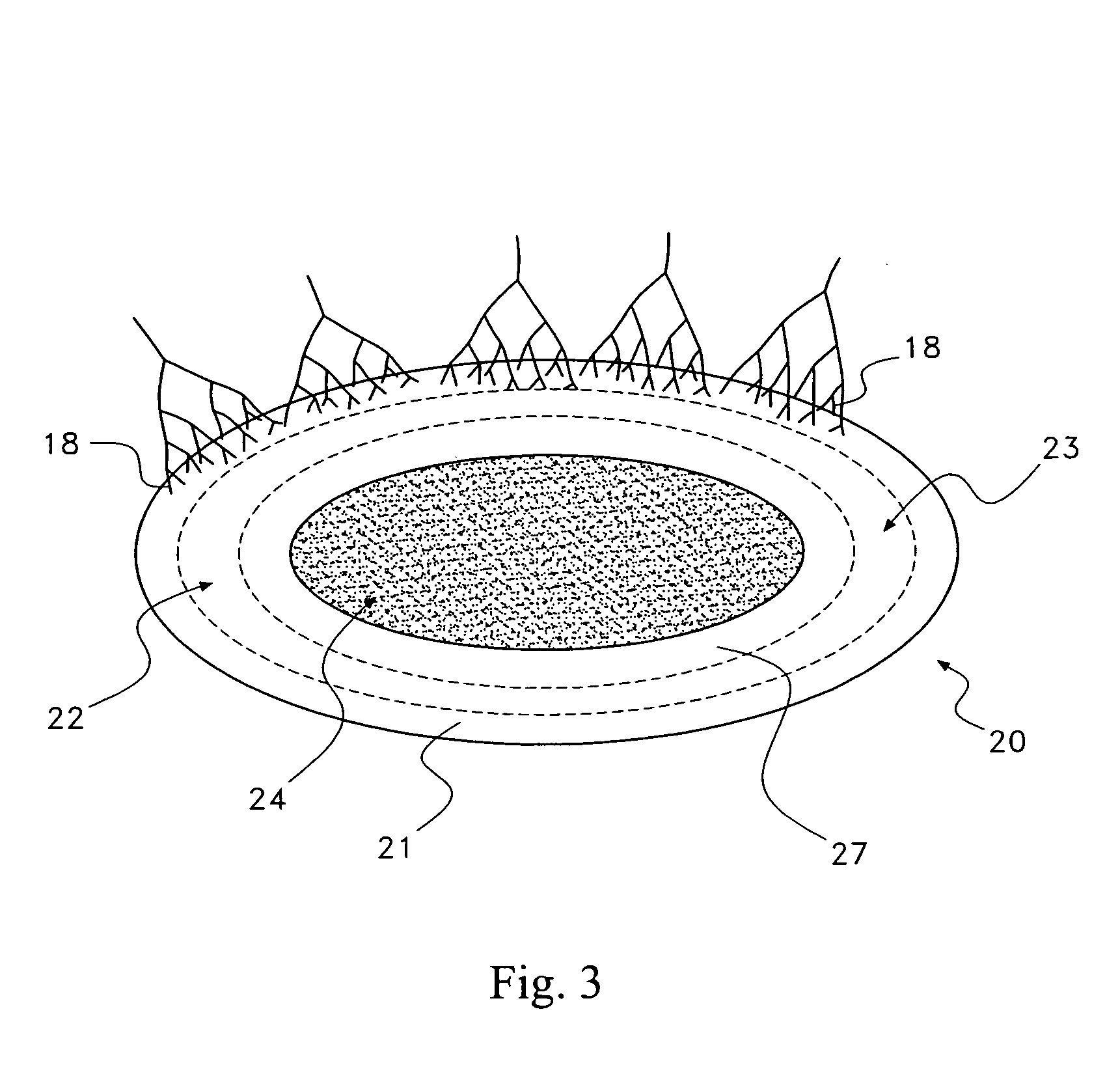Pharmaceutical removal of neuronal extensions from a degenerating disc
a neuronal extension and pharmaceutical technology, applied in the direction of peptides, drug compositions, plant/algae/fungi/lichens ingredients, etc., can solve the problems of high cost, high cost, and high cost of spine-related pain, and achieve the prevention of formation or further growth, suppression or reduction of sensitivity or activity, and the effect of preventing the formation or further growth
- Summary
- Abstract
- Description
- Claims
- Application Information
AI Technical Summary
Benefits of technology
Problems solved by technology
Method used
Image
Examples
first embodiment
[0053] In a first embodiment, the therapeutic agent comprises at least one active ingredient that disrupts neuronal elements in the disc region 25 by destroying, forcing retraction or blocking the further growth of the neuronal elements in the disc region 25. The active ingredient may target one or more aspects of the neuronal elements to achieve this disruption, some of which are indicated in the following.
[0054] For example, in one variation of the first embodiment, the therapeutic agent comprises an active ingredient that is a neurotoxin. Suitable neurotoxins may be found in nature, such as neurotoxins that are isolated from invertebrates, reptiles, marine animals, plants or microorganisms. Alternatively, the neurotoxin may be a synthetic compound; specifically, compounds comprising ammonia or cyanide may be suitable as a neurotoxic active ingredient. Or, the neurotoxin may be a dye, such as bisbenzimide, trypan blue, brilliant blue, methylene blue, indocyanine green, ruthenium r...
second embodiment
[0058] In a second embodiment, the therapeutic agent comprises at least one active ingredient that desensitizes the neuronal elements 28 in the disc region 25. In one variation, the active ingredient may be camphor, menthol, piperine, mustard oil, curcumin or eugenol. In another variation, a vanilloid receptor agonist may be employed for the active ingredient, such as such as 8-Methyl-N-vanillyl-trans-6-nonenamide (Capsaicin); Z-Capsaicin; Gingerol; Zingerone; 8-Methyl-N-vanillylnonanamide (Dihydrocapsaicin); 6,7-Deepoxy-6,7-didehydro-5-deoxy-21-dephenyl-21-(phenylmethyl)-daphnetoxin,20-(4-hydroxy-5-iodo-3-methoxybenzeneacetate) (5′-Iodoresiniferatoxin)-?; (+)-Isovelleral; N-Vannilyloleoylamide (Olvanil); Phorbol 12,13-dinonanoate 20-homovanillate; Resiniferatoxin; N-(3-Methoxyphenyl)-4-chlorocinnamide (SB-366791); 2,3,4-Trihydroxy-6-methyl-5-[(2E,6E)-3,7,11-trimethyl-2,6,10-dodecatrienyl]benzaldehyde (Scutigeral); 6,7-Deepoxy-6,7-didehydro-5-deoxy-21-dephenyl-21-(phenylmethyl)-20-(...
third embodiment
[0060] In a third embodiment, the therapeutic agent may modulate the neuronal elements 28 in the disc region 25. More specifically, the therapeutic agent may modulate the activity of the neuronal elements 28 in the disc region 25. In one variation, the therapeutic agent modulates the sensitivity of neuronal receptors, such as nociceptors, vanilloid, adrenergic, cholinergic, glutamate, GABA, serotonine, somatostatin opioids, ATP, Na+, K+, Ca2+, cannabinoids, Substance P and neuropeptide receptors. Suitable active ingredients in this variation includes botulinum toxin, anti-convulsants, anesthetics, analgesics, opioids and cannabinoids. In another variation, a vanilloid receptor antagonist is used for the active ingredient; exemplary compounds for the active ingredient include N-[2-(4-Chlorophenyl)ethyl]-1,3,4,5-tetrahydro-7,8-dihydroxy-2H-2-benzazepine-2-carbothioamide (Capsazepine); [N-(4-Hydroxy-3-methoxyphenyl)methyl]-5Z,8Z,11Z,14Z-eicosatetraenamide] (Arvanil); N-(3-Methoxyphenyl...
PUM
| Property | Measurement | Unit |
|---|---|---|
| force | aaaaa | aaaaa |
| cell adhesion | aaaaa | aaaaa |
| adhesion | aaaaa | aaaaa |
Abstract
Description
Claims
Application Information
 Login to View More
Login to View More - R&D
- Intellectual Property
- Life Sciences
- Materials
- Tech Scout
- Unparalleled Data Quality
- Higher Quality Content
- 60% Fewer Hallucinations
Browse by: Latest US Patents, China's latest patents, Technical Efficacy Thesaurus, Application Domain, Technology Topic, Popular Technical Reports.
© 2025 PatSnap. All rights reserved.Legal|Privacy policy|Modern Slavery Act Transparency Statement|Sitemap|About US| Contact US: help@patsnap.com



